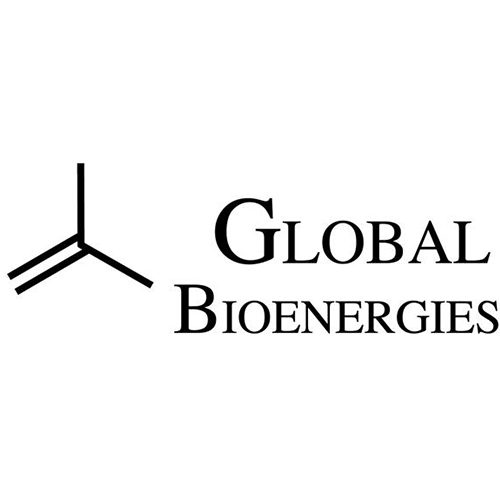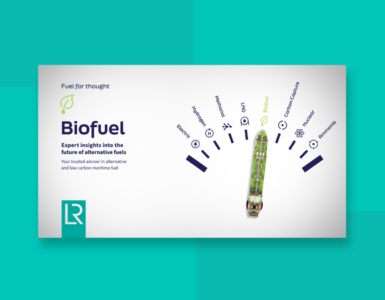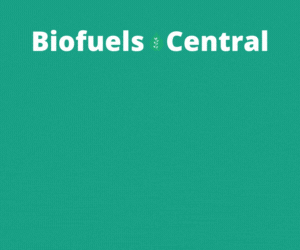Global Bioenergies announces the end of the REWOFUEL project, which ran from 1 June 2018 to 30 June 2022. This project brought together several European industries such as Repsol, Sekab and Fibenol, with the objective of demonstrating the conversion of wood residues into sustainable high-performance components for road and aviation fuels, and thus participate to the decarbonization efforts of ground and air transportation.
The project was coordinated by Global Bioenergies and received €13.8 million in funding from the European Horizon 2020 research and innovation programme.
The project, otherwise known by its full name, “Residual Wood Conversion to High-performance drop-in Biofuels”, was funded under contract n° 792104 through the Innovation and Networks Executive Agency (INEA). Beside Global Bioenergies, Repsol, Sekab and Fibenol, the project also involved SkyNRG, Peab, Neste, IPSB, Technip FMC, Metex NoovistaGo and the Energie Institut JKU.
For this project, sugars from wood were supplied by Sekab and Fibenol.
🔥 What about we co-host a webinar? Let's educate, captivate, and convert the biofuels economy!
Biofuels Central is the global go-to online magazine for the biofuel market, we can help you host impactful webinars that become a global reference on your topic and are an evergreen source of leads. Click here to request more details
Tino Lassmann, Project Manager at Sekab said:
Our technology to produce second generation sugars is considered to be among the best in the world, especially when it comes to wood as raw material.
“We are convinced of its many values and possibilities as a way to reducing our environmental footprint. We are proud to have been a part of REWOFUEL together with other leading players in the European bioeconomy and we will continue the cooperation towards a more sustainable world.”
Peep Pitk, Chief Development Officer at Fibenol said:
We have been impressed by the performance of Global Bioenergies’ bio-isobutene process with our wood sugars.
“From 2023 we are producing these wood sugars at 20,000 tons per year capacity at our plant in Imavere, Estonia and looking forward to taking this collaboration to the next level.”
These sugars were then processed into high performance sustainable biofuels.
Bernard Chaud, Head of Industrial Strategy at Global Bioenergies, said:
We have shown that bio-isobutene produced from second generation sugars from wood can be used to produce both octane booster for road transportation as well as Sustainable Aviation Fuel.
As a result, batches of bio-isooctane, bio-ETBE and sustainable aviation fuel have been produced by Global Bioenergies and then tested by Repsol, Spain’s leading oil company.
Javier Marcos González, Project Manager at Repsol said:
The initial tests we conducted were satisfactory.
“Having these isobutene derivatives from second-generation renewable resources would be a significant step forward for the fuel industry.”
Batches of sustainable aviation fuel were produced and transferred to SkyNRG, leader in the sustainable aviation fuel industry. Significant work has been coordinated by SkyNRG for the certification of these isobutene derivatives as a sustainable aviation fuel.
Maarten van Dijk, Chief Development Officer at SkyNRG said:
For the aviation industry to lower its carbon footprint and meet European targets on sustainable aviation fuel (SAF), we need to keep developing new production pathways, with the aim to unlock new sustainable feedstock sources and increase conversion efficiencies.
“The REWOFUEL project has proven to be able to do exactly this. We have been impressed by the drive of all partners to make this project a success and by the innovative platform of Global Bioenergies in particular. We are looking forward to the next scale-up step and hope to see Global Bioenergies’ sustainable aviation fuel in commercial aircraft in the future.”
Meanwhile, by-products from the ligneous part of wood chips have been incorporated by Peab into successfully implemented bitumen products. Producing bitumen with a better environmental footprint will help to optimise overall road transport performance.
The proteins resulting from fermentation are intended to be used in animal feed. The experiments conducted by Metex NoovistaGo in this respect have produced positive results.
Finally, the Energie Institut JKU has carried out life cycle analyses of the various segments of this value chain and has quantified the reduction in CO2 emissions according to different configurations, which can lead to savings of up to 85% compared to the benchmark fossil solution.
Meanwhile, engineering efforts have been conducted by Neste , Technip-FMC, and IPSB, a French engineering company specialized in agribusinesses.
Marc Delcourt, Chief Executive Officer of Global Bioenergies, added:
This REWOFUEL project has brought together players from different fields to assemble an industrial value chain aimed at reducing the carbon footprint of air and road transportation.
“These sectors are at the heart of the environmental debate: transportation based on thermal engines must switch to renewable energy if it wants to survive in the coming decades. Air transport must also reduce its environmental impact. The players of the REWOFUEL project will maintain relations beyond the project to make the prospects more concrete.”
About GLOBAL BIOENERGIES
Global Bioenergies converts plant-derived resources into compounds used in the cosmetics industry, as well as the energy and materials sectors.
After launching the first long-lasting and natural make-up brand LAST® in 2021, Global Bioenergies is now marketing Isonaturane® 12, its key ingredient, to major cosmetics companies to improve the naturalness of their formulas whilst improving their carbon footprint.
In the long run, Global Bioenergies is also aiming at cutting CO2 emissions in the aviation and road sector and thereby curb global warming. Global Bioenergies is listed on Euronext Growth Paris (FR0011052257 – ALGBE).
READ the latest news shaping the biofuels market at Biofuels Central
Global Bioenergies: Successful completion of REWOFUEL project, Paris, September 22, 2022








